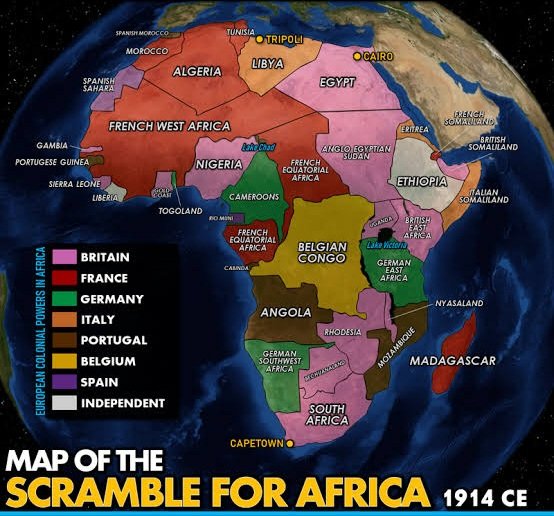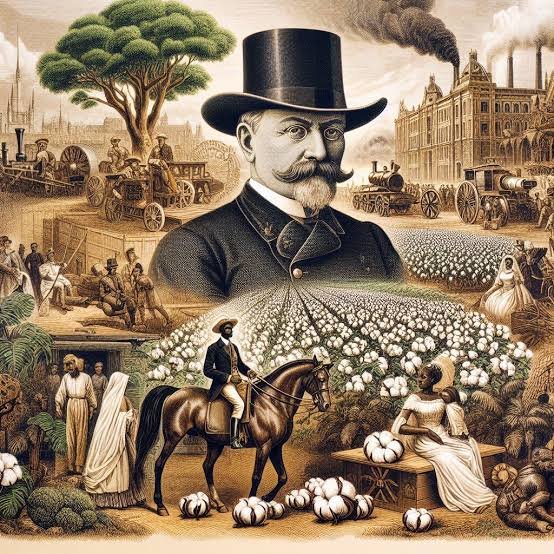Colonialism in Africa left an indelible mark on the continent, shaping its political, social, and economic landscapes in ways that are still evident today. From the late 19th century until the mid-20th century, European powers scrambled to carve up Africa, driven by desires for resources, strategic advantage, and national prestige. This article delves into the various dimensions of colonialism in Africa, exploring its effects on different regions and addressing some of the lingering questions about this complex chapter of history.
The Scramble for Africa: A Brief Overview

Colonialism in Africa began in earnest in the late 1800s, with the Berlin Conference of 1884-1885 marking the official partition of the continent among European powers. Countries like Britain, France, Germany, Belgium, Portugal, and Spain claimed vast territories, often with little regard for existing ethnic or political boundaries. This era, known as the “Scramble for Africa,” saw the continent divided and redefined under foreign rule.
Key Colonial Powers and Their Territories
- Britain: Claimed large areas including Egypt, Sudan, Kenya, Uganda, Nigeria, Ghana, and South Africa.
- France: Controlled West African territories like Senegal, Mali, Ivory Coast, and Niger, as well as Madagascar and parts of North Africa.
- Germany: Had colonies in present-day Tanzania, Namibia, Cameroon, and Togo.
- Belgium: Infamously controlled the Congo Free State, which later became the Belgian Congo.
- Portugal: Governed Angola, Mozambique, and Guinea-Bissau.
- Spain: Held smaller territories such as Equatorial Guinea and Western Sahara.
Economic Impact: A Double-Edged Sword
Resource Exploitation
One of the primary motivations for colonialism in Africa was the exploitation of its vast natural resources. Europeans extracted minerals, rubber, timber, and other valuable commodities, often using forced labor. The Belgian Congo, for instance, saw brutal exploitation under King Leopold II’s rule, where millions of Congolese died due to harsh working conditions and punitive measures.
Infrastructure Development
On the flip side, colonial powers did invest in infrastructure to facilitate resource extraction. Railways, ports, and roads were constructed, some of which continue to serve African countries today. However, these developments were primarily designed to benefit the colonizers rather than the local populations.
Social and Cultural Disruptions
Imposition of Foreign Norms
Colonialism in Africa led to the imposition of European cultural norms, languages, and religions. Indigenous traditions and governance structures were often suppressed or ignored. Missionaries played a significant role in converting Africans to Christianity, which, while providing some education and health services, also disrupted local belief systems.
Education and Health
Colonial administrations did establish schools and medical facilities, though these were often limited and unevenly distributed. Education was primarily aimed at creating a small class of African elites who could assist in colonial administration, rather than broad-based educational development.
Political Repercussions
Artificial Borders and Ethnic Tensions
The arbitrary borders drawn by colonial powers often lumped together diverse ethnic groups or split cohesive communities, sowing seeds of future conflicts. The legacy of these artificial boundaries can be seen in numerous post-independence conflicts across Africa.
Struggle for Independence

The mid-20th century saw a wave of independence movements sweep across Africa. Inspired by global decolonization trends and the weakening of European powers after World War II, African leaders fought to reclaim sovereignty. Figures like Kwame Nkrumah in Ghana, Jomo Kenyatta in Kenya, and Nelson Mandela in South Africa became icons of this struggle.
Long-Term Consequences
Economic Challenges
Many African nations inherited economies that were heavily dependent on a few commodities, making them vulnerable to market fluctuations. The lack of industrial development and diversified economies posed significant challenges for post-colonial governments.
Governance Issues
The colonial legacy also included weak political institutions and limited experience in self-governance. This vacuum often led to instability, coups, and authoritarian regimes, further complicating efforts to build democratic and stable nations.
Case Studies: Colonialism in Specific Regions
West Africa: The French and British Legacy
In West Africa, the French and British colonial administrations implemented different styles of governance. The French pursued a policy of assimilation, attempting to integrate colonies into a greater French state, while the British employed indirect rule, working through local leaders. These differing approaches had long-lasting impacts on the political and social structures in the region.
Southern Africa: The Apartheid Era
South Africa presents a unique case where colonialism morphed into a system of institutionalized racial segregation known as apartheid. The effects of apartheid, which only ended in 1994, continue to influence South African society, with deep racial and economic divides still prevalent.
Central Africa: The Belgian Congo
The Belgian Congo stands out for its extreme exploitation and brutality. King Leopold II’s personal control over the Congo Free State resulted in a humanitarian disaster, with millions of Congolese perishing due to forced labor, disease, and violence. Even after becoming a Belgian colony, conditions improved only marginally.
Conclusion
Colonialism in Africa was a transformative period that reshaped the continent in profound ways. While it brought about some infrastructural developments, the overwhelming consequences were exploitative and detrimental. The arbitrary borders and disrupted societies left a legacy that continues to influence Africa’s political and economic landscapes. Despite these challenges, the resilience and determination of African nations to overcome their colonial past and forge a brighter future remain a testament to their enduring spirit. As we reflect on this history, it’s crucial to recognize both the injustices and the strides made toward a more equitable and prosperous continent.
Frequently Asked Questions
1. What were the main motivations behind colonialism in Africa?
The primary motivations were economic exploitation, strategic advantage, and national prestige. European powers sought to extract resources, establish trade routes, and expand their influence.
2. How did colonialism impact African societies?
Colonialism disrupted traditional governance and social systems, imposed foreign cultural norms, and led to significant economic exploitation. It also introduced new infrastructure and education systems, though these were limited and unevenly distributed.
3. What were the long-term political effects of colonialism in Africa?
The arbitrary borders drawn by colonial powers contributed to ethnic tensions and conflicts. Post-independence, many African nations faced challenges in establishing stable and democratic governments due to weak political institutions and limited governance experience.
4. How did African countries achieve independence?
Independence was achieved through a combination of diplomatic negotiations, political activism, and in some cases, armed struggle. The mid-20th century saw a wave of decolonization movements inspired by global trends and the weakening of European powers after World War II.
5. What is the legacy of colonialism in Africa today?
The legacy includes ongoing economic challenges, political instability, and social divisions. However, many African nations have also made significant strides in development and governance, working to overcome the lasting impacts of colonial rule.

